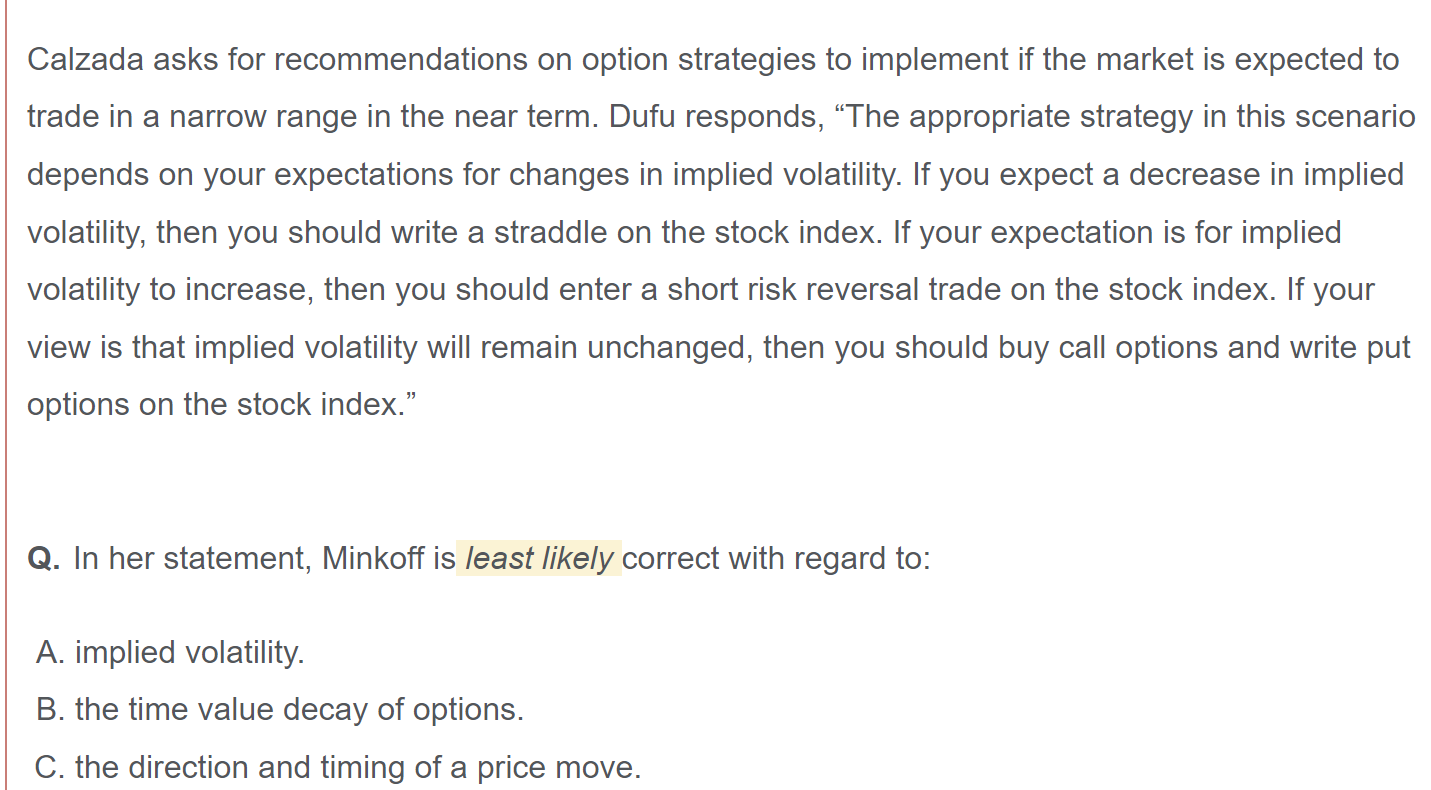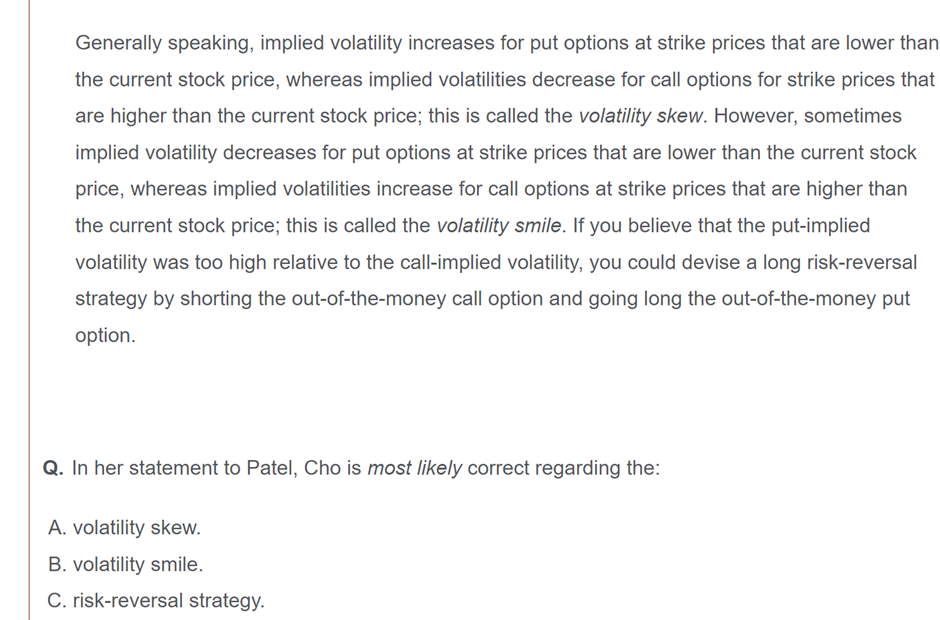
A is correct. Minkoff is incorrect in stating that calendar spreads are appropriate only if the expectation is for an increase in implied volatility. A short calendar spread is appropriate if the expectation is for a decrease in implied volatility or a big move in share prices that is not imminent. If a long calendar spread is implemented, the expectation is for a stable market or an increase in implied volatility. Minkoff is correct that a calendar spread strategy is appropriate when there is an expectation for share prices to move in a certain direction but not immediately and that such a strategy focuses on capturing the time value of stock options.

A is correct. Cho correctly describes the volatility skew. Implied volatility for out-of-the-money (OTM) put options is higher than for at-the-money (ATM) put options and increases as the strike price moves further away from the current stock price. Implied volatilities for OTM call options are lower than for ATM call options and decrease as strike prices rise above the current stock price.
老师,能解释一下这两题吗?上课时候学会的概念是比较OTM put 和call的价格来区分skew和smile。
这几个题很费解




